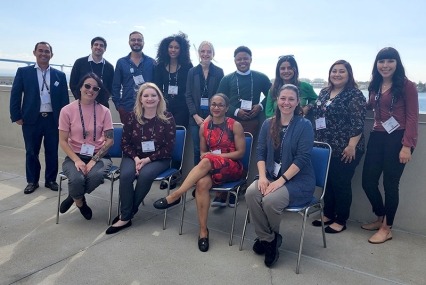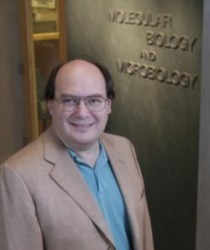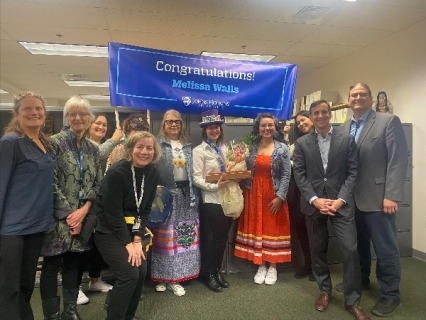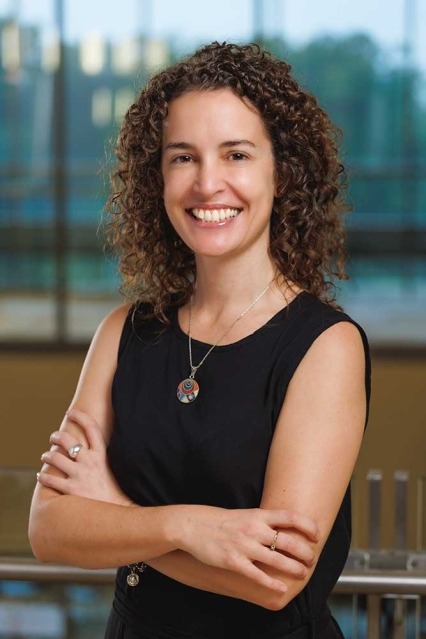What’s New at NIDA
Interested in Attending a Scientific Conference? The NIDA Diversity Scholars Travel Award Program is Accepting Applications!
The National Institute on Drug Abuse (NIDA), Office of Diversity and Health Disparities (ODHD) is accepting applications for the NIDA Diversity Scholars Travel Award Program to help defray the costs of attending national scientific conferences. Please see the below application for more information and consider sharing with anyone who may be interested. Scientists from underrepresented backgrounds are encouraged to apply, though individuals from all backgrounds are eligible to participate.
Apply for a travel award to any of the below scientific conferences:
- The American Psychological Association (APA) on August 3-6, 2023, in Washington, DC. Applications due by May 4, 2023.
- The National Hispanic Science Network International Conference (NHSN) on September 21-30, 2023, in Washington, DC. Applications due by June 28, 2023.
- The Annual Society for Neuroscience (SfN) Meeting on November 11-15, 2023, in Washington, DC. Applications due by August 12, 2023.
Please reach out to Julie Huffman (Julie.Huffman@nih.gov) if you have any questions. See the NIDA Diversity Scholars Travel Award Program application for more information on how to apply.
The NIDA Diversity Supplement Program: A Professional and Career Development Opportunity

The NIDA Diversity Supplement Program seeks to improve the diversity of the research workforce by recruiting and supporting postbaccalaureates, postdoctorates, and eligible early-career investigators (ECIs) from groups that have been shown to be underrepresented in health-related research. There are multiple Diversity Supplement Programs to consider. Grants supported under the NIH Helping End Addiction Long-term (HEAL) Initiative, grants supported under the Brain Research through Advancing Innovative Neurotechnologies (BRAIN) Initiative, and the existing NIDA grant programs are all offering Diversity Supplements to provide support that will help launch the careers of underrepresented scientists in addiction research. HEAL awardees must apply to PA-21-071 through the NOSI, NOT-NS-20-107. BRAIN Initiative awardees must apply to PA-21-071 through the NOSI, NOT-NS-22-012.
This program provides support for underrepresented scientists at these career stages to prepare for an independent career in addiction research. Please apply to the diversity supplement, PA-21-071. PIs with HIV/AIDS-related grants are particularly encouraged to apply. Application Deadline for FY2023: May 9, 2023.
For more information on the NIDA Diversity Supplement Program please see the NIDA Diversity Supplement Program webpage, FAQs, and How to Apply.

BRAIN K99/R00 – Career Transition Award to Promote Diversity
NIDA is proud to offer the following Brain K99/R00 Early-Career Investigator Award. This award provides up to 5 years of support consisting of two phases: 1-2 years of mentored support for highly promising, postdoctoral research scientists, followed by up to 3 years of independent support contingent on securing an independent research position. This program is designed to enhance workforce diversity and foster a strong cohort of new, highly skilled, and well-trained, NIH-supported, independent investigators from diverse backgrounds (including nationally underrepresented groups) working in research areas supported by the BRAIN Initiative. For more information, please visit BRAIN Program Funding Announcements.

NIDA HIV Research Program Seminar: Substance Use and HIV Latency
Mark your calendars for Wednesday April 26th, 1-2 pm ET for this unique opportunity to interact with a leading researcher at the intersection of HIV and substance use. The NIDA HIV Research Program (HRP) is pleased to announce the next presentation in its Seminar Series: A vicious cycle: The impact of inflammation and substance use on the control of HIV latency in microglia by Dr. Jonathan Karn, Reinberger Professor & Chair of the Department of Molecular Biology & Microbiology at Case Western Reserve University School of Medicine. Dr. Karn has been studying transcriptional control in HIV since the mid-1980s. His current research focuses on the impact of substance use on the regulation of HIV transcription and latency in microglial cells.
National Advisory Council on Drug Abuse member Dr. Melissa Walls receives the prestigious Johns Hopkins President’s Frontier Award

The Office of Research Training, Diversity, and Disparities (ORTDD) is thrilled to share that the Co-Director of the John’s Hopkins University Center for Indigenous Health, Dr. Melissa Walls, won one of the most prestigious prizes of Johns Hopkins University - the President’s Frontier Award. The Award honors one JHU scientist a year from multiple divisions of the University for demonstrating significant scholarly achievement and showing exceptional promise for future work. It comes with a $250,000 prize to further the recipient’s research goals.

Dr. Walls was surprised with the award announcement on Monday by JHU President Ron Daniels and a delighted crowd of colleagues from across the country at the Center’s Baltimore office. Upon receiving the award Dr. Walls shared, “This is for Indigenous peoples and the idea to dream is so inspiring….it’s not because of me, but because of all of them. And I promise to be the best steward of that gift. It is an honor.” The Center’s Executive Director, Dr. Allison Barlow, shared: “This is a day our Center will hold in our hearts forever.” Addressing Dr. Walls, she continued, “You are bringing something extra to science: humanity and Indigenous ways of thinking and knowing that makes public health stronger and better.” Read more about Dr. Walls and her incredible achievement.
Career Development Spotlight: Constanza Garcia Keller, Ph.D.

Dr. Garcia Keller joined the Medical College of Wisconsin as Assistant Professor in July of 2022. Prior to her arrival at MCW, she joined the Kalivas laboratory at the Medical University of South Carolina, where she completed her post-doctoral training and then held the position of Research Assistant Professor. Dr. Keller graduated from National University of Cordoba, Argentina in 2007 with a Bachelor of Science in Biochemistry. She continued her studies there, and later earned her Ph.D. in Chemical Sciences, with specialization in neuropharmacology. For her doctoral studies, she was awarded first place in Best Argentinian Neuroscience Thesis 2014. Dr. Keller’s current research focuses on the neurobiology of stress and addiction. The ORTDD had the pleasure of conducting an interview with Dr. Keller to learn more about what led her to a career in research.
- At what point in your life did you know you wanted to become a scientist?
At beginning I did not know that I wanted to be scientist, that happened afterwards, but since young age I was interested in biochemistry. I remember at the age of 10 or 12, insisting on getting this game that I saw on the store that would allow me to do “magic”. The game had different salts and liquids reagents that after mixing them I was able to make colored solutions that then, by adding something else it would become transparent, or if burning a salts mix, it will turn the flame into different colors. I was able to “do magic” but actually it was chemistry reactions, and I was completely fascinated by it. - What drew you to the STEM field and particularly substance use/addiction research? Were there any events or individuals who inspired you throughout your professional journey?
I was exposed to science or the scientific world since young years, and I know it is quite rare to have that opportunity. The first person that introduce me to STEM was my aunt. She is a biochemist that did her PhD in Chemical Science (neuroscience), and she would tell me what she was working on in those days “Perinatal undernutrition reduces alpha- and beta-adrenergic receptors in adult brain” (Science, 1982), she told me about learning and memory experiments and how she would work with a maze and rodents to answer her questions. That made me start thinking about how the brain and body works. Then, during my graduate studies my mentor, Dr. Liliana Cancela at Universidad Nacional de Cordoba, Instituto de Farmacologia Experimental, Cordoba, Argentina (IFEC-CONICET) and later in my postdoctoral studies, Dr. Peter Kalivas at Medical University of South Carolina (MUSC), South Carolina, USA, were crucial and key master’s in building and inspiring my journey. Now, at a different stage in my career, at the Medical College of Wisconsin (MCW) as Assistant Professor, my mentors Drs Cecilia Hillard and John Mantsch, both well-known and recognized leaders in their fields, is challenging and motivating.
What particularly drew me into study substance use/and addiction was not that clear to me, although looking back I think it was my father’s addiction to nicotine. He started to smoke as teenager, probably around 14, and he was completely absorbed by it. I remember how much his clothes and car would smell like tabaco. His first wakeup call was kidney cancer, after that he had two aneurisms that doctors were able to control. All this happened before the age of 50 years. He quit shortly after for 7 years approximately, but then he said that because of the stress and work, he started again. This time he got lung cancer, and he couldn’t finish that fight. The strongest image that was left in my head is him that occasionally while he was taking the chemotherapy pills with his left hand, he was still smoking with the right hand. Now I think, I was and still I am, trying to understand what was happening to him. He actually did great when I explained to him that the “brain plays some tricks”, and what the “cues” meant and to try to find an easy “exit” when the compulsion happened. But when the stress and economic situation hit him there was no listening. - What advice would you give to Early-Stage Investigators (ESIs) and/or scholars at earlier career stages who working towards the goal of being independently funded?
That is a great question and definitively hard. I love doing science, talking about science inside and outside the lab, learning how the brain, the mind and body works. Even my partner does science too. I do not know if this is the best way, but I set my goal and I put all my energies toward that direction. It almost feels that I had blinders on my eyes. I really love what I do, and I try to transmit that to others, students, postdoc, technician, or piers. - What was the best and worst career advice you have received during your journey of becoming a scientist?
I don’t remember one specific advice that I liked the best or worst, although I would say that what helped me to get here is the conversations with my peers and friends. Having a support network of female’s scientist and friends, have been one of the best things that science brought me. Everyone has different position, background, job description and research experience but we nourish from each other experiences and journeys. - What has been the most challenging obstacle you have had to face throughout your journey to becoming an addiction scientist and what have you done to push through?
Along my journey, I have experienced the difficulties of acclimating to a new country and a specific mindset, but with time I was able to adapt and persevere to eventually succeed. Minority groups, myself included, quite commonly think we do not belong. Changing this concept requires real structural changes, and I believe that working for the democratization of knowledge, showing that education does not belong to a group or social class, will engage minorities. I think that this experience has given me the abilities to empathize with those coming from similar situations. Since defining diversity is not an exact science, we are all a work in progress when it comes to addressing diversity. I believe the best way to start is taking actions each day, from listening with patience and empathy to creating an environment conducive of dialogue, asking questions, and respecting the answers, and, most importantly, appreciating one another's contributions to the University family. Diversity renders differences in perspective and thought processes, and these qualities are necessary within the scientific community to continue making progress. - Is there anything else that you would like to share with the NIDA community about your inspiring journey?
I have short anecdote. A few years ago, during an American College of neuropharmacology (ACNP) meeting, I was trying to decide which was the best grant that I should apply because of my research question but also because I was an international postdoc. It was the second to last day, and Dr. Nora Volkow was one of the panelists. I take courage and decide to introduce myself, and if possible, talk about the grant options. She openly received me and said, “Let’s talk but you need to walk with me because I have a flight to catch in 5 min”. Looking back, I realized that she did not have those 5 minutes; however, she made time to hear me. Most importantly, she encouraged me to apply for my K99/R00. Moreover, she said that my project was relevant for NIDA’s mission. When I was back from the meeting, it was fun to realize that some people saw the scene of Dr Volkow and me, talking and fast walking across the conference hall.
Program Updates
NIDA Avant-Garde Program for HIV and Substance Use Disorder Research (DP1 Clinical Trial Optional) PAR-23-269 (DP1)
The NIDA Avant-Garde Award Program for HIV Research supports exceptionally creative scientists, who propose high-impact studies that open new areas of HIV research in the context of substance use and Substance Use Disorders (SUD) and/or lead to new avenues for prevention and treatment of HIV in people with SUD. The term “avant-garde” refers to highly innovative ideas and/or approaches that have the potential to be transformative. Accordingly, applications responding to this funding opportunity must propose pioneering research that aligns with the NIH HIV/AIDS Research Priorities https://grants.nih.gov/grants/guide/notice-files/NOT-OD-20-018.html and is substantially different from what is currently being pursued by the principal investigator or others in the field.
Avenir Award Program for Research on Substance Use Disorders and HIV (DP2 Clinical Trial Optional) PAR-23-125 (DP2)
Avenir means future in French. Accordingly, the Avenir Award Program for research on Substance Use Disorders (SUD) and HIV looks towards the future by supporting early stage investigators (ESI) proposing highly innovative studies at the intersection of HIV and substance use. Applications responding to this funding opportunity must clearly describe the nexus of HIV and substance use and propose research that aligns with NIH HIV/AIDS Research Priorities NOT-OD-20-018.
For more grant information please visit the NIDA Grants & Funding website.
Are you subscribed to the NIDA ORTDD mailing list?
We invite you to review available NIDA subscription options to ensure you are receiving the most relevant content for your specific needs (such as funding announcements, meetings & events, and more!). To sign up for other topics, along with this bimonthly newsletter, please visit: National Institute on Drug Abuse (govdelivery.com).

